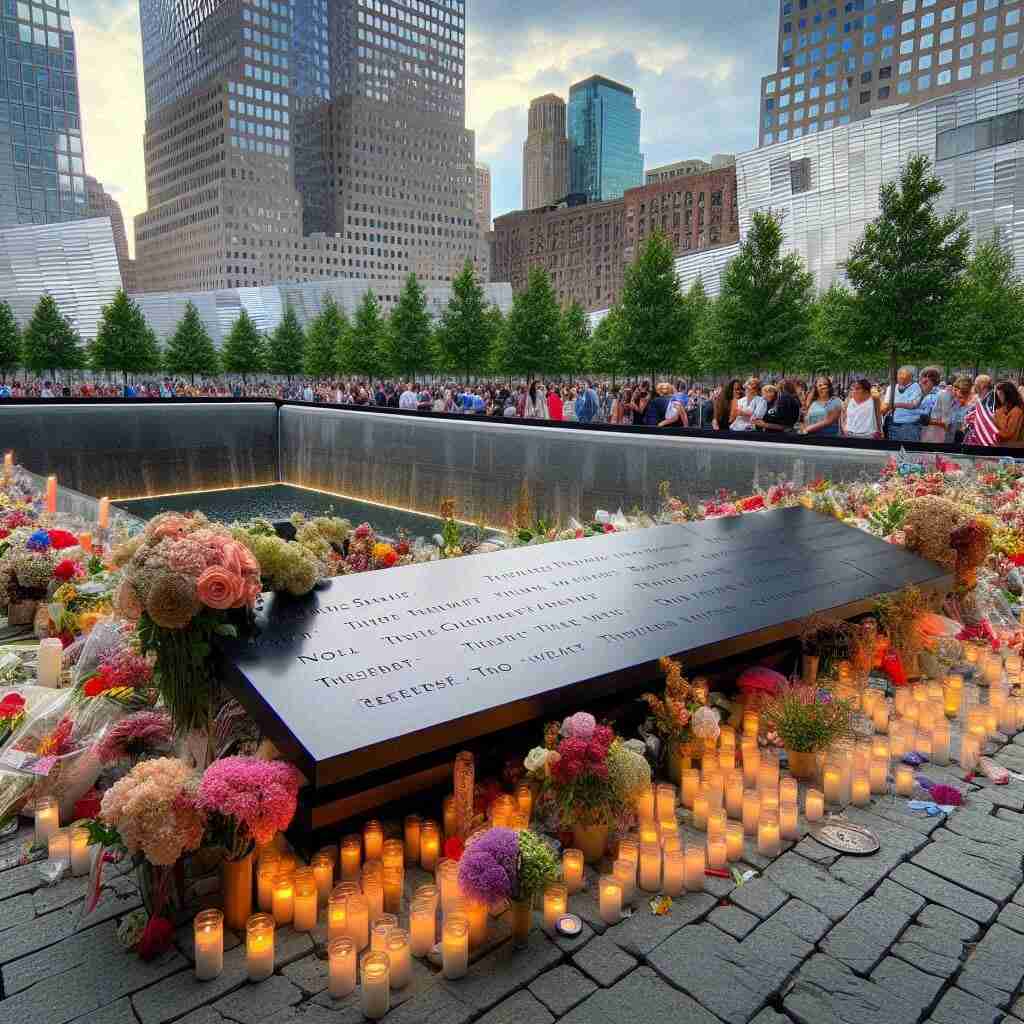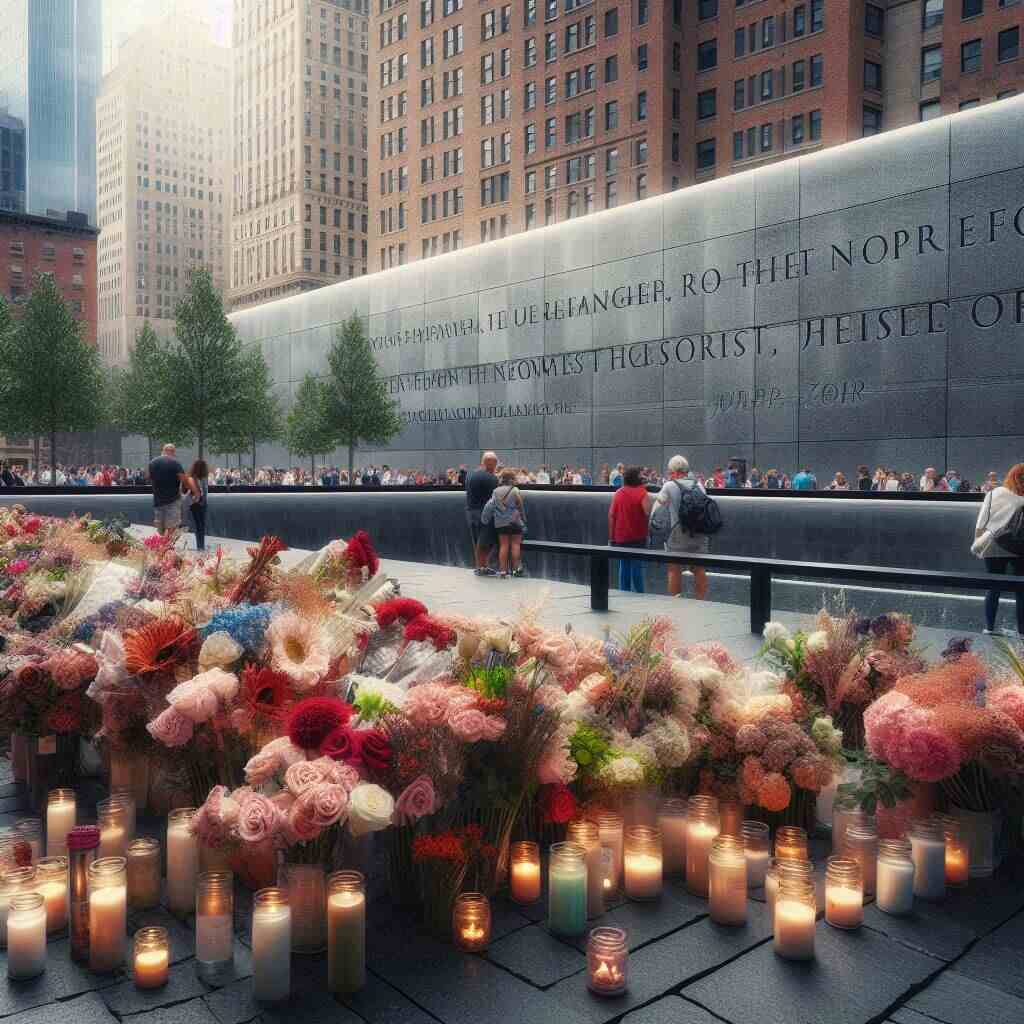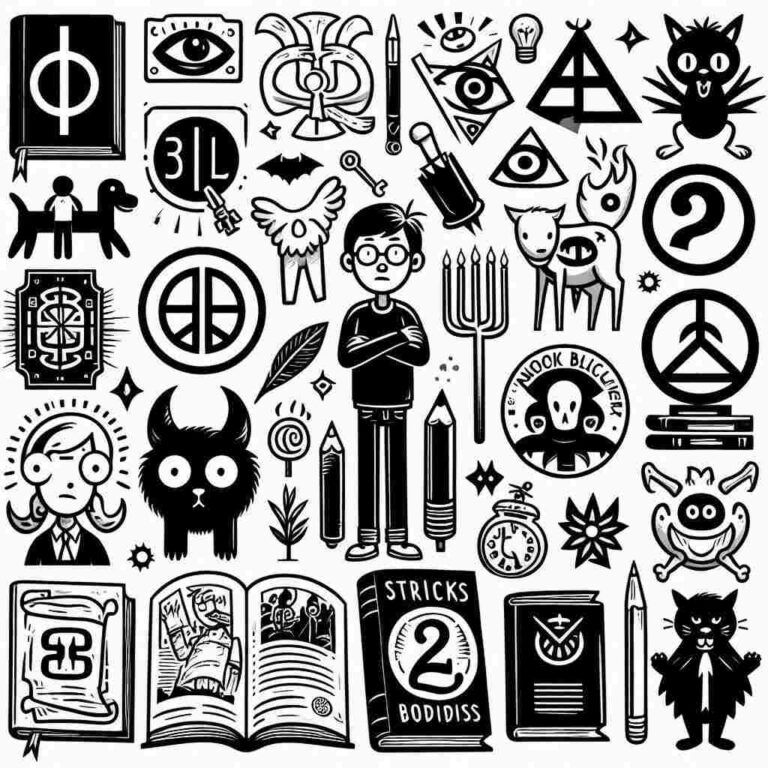Important Quotes from Ground Zero: Words That Still Echo Through America
What “Ground Zero” Means—and Why Words Matter
The site, the moment, and the memory
When people say “Ground Zero,” they usually mean the World Trade Center site in Lower Manhattan after the September 11 attacks. It was a place of dust and sirens, but also of hand-lettered posters, candles, and a kind of neighborly tenderness New York is not always famous for. In those days and the months that followed, phrases spoken into bullhorns, murmured at fences, and printed on paper coffee cups began to travel. They stuck. They became the language of remembrance.
Why quotations outlast headlines
Headlines expire. Quotations live in our pockets. A few words—when true, timely, and human—can shrink a complicated world into something our hearts can hold. That’s what the most important quotes from Ground Zero did: they offered clarity amid chaos, compassion amid grief, and resolve without cruelty.
How to Read These Quotes Without Losing the Context

Who said it, when, and why
A good quote is a snapshot; the full story is the album. Whenever you use a Ground Zero quote, ask three quick questions: Who said it? When and where? Why those words in that moment? Context doesn’t dilute emotion; it grounds it.
Short quotes, long stories
Many of the lines we remember are short—sometimes just a few words—but every one of them sits on top of a larger story of people, choices, and consequences. Keep that story in view.
A Curated List of Short, Historic Quotes

“I can hear you. The rest of the world hears you.” — President George W. Bush
Spoken at Ground Zero to rescue workers days after the attacks, these words captured a leader acknowledging the people doing the hardest work. Short as they are, they also framed a promise: the country would respond, together.
“Let’s roll.” — Todd Beamer
A passenger on Flight 93, Beamer’s words became shorthand for courage under impossible pressure. It’s a line that honors quick decisions, teamwork, and the instinct to protect strangers.
“No day shall erase you from the memory of time.” — Virgil
Inscribed at the National September 11 Memorial Museum, the ancient line from the Aeneid widens the lens: remembrance isn’t just civic duty—it’s part of being human.
“We will not tire, we will not falter, and we will not fail.” — President George W. Bush
This statement conveyed steadiness instead of swagger. The rhythm—three clauses, three negations—made it memorable, and the promise of endurance resonated with a weary nation.
“America is under attack.” — Andrew Card
The Chief of Staff’s words to the President, later shared publicly, were blunt and accurate. The four-word fragment is the sound of a page turning in history.
“Never forget.” — A national refrain
Not owned by any single person, this phrase became the moral anchor of remembrance. It’s less a command than an invitation to live in ways that honor the lost.
“If you see something, say something.” — Public-safety message of the era
Born in the years that followed and now ubiquitous, this line reframed vigilance as a shared responsibility—watchfulness without paranoia.
Note: The above are concise, widely recognized lines tied to the Ground Zero era and its immediate context. They are powerful precisely because they are brief.
Themes That Tie These Quotes Together

Courage and duty
“Let’s roll” and the words shouted over a bullhorn at the Pile both point to a particular kind of courage—the kind that runs toward the problem. These quotes lift up the firefighters, medics, police officers, construction workers, dog handlers, and volunteers whose actions spoke louder than any speech.
Grief, love, and remembrance
Virgil’s line and the phrase “Never forget” show that remembrance isn’t passive. It’s work. We remember by telling stories, by reading names, by caring for the living companions of the dead. Love is the thread that keeps those names from slipping away.
Unity and resolve
The cadence of “We will not tire…” and the stark clarity of “America is under attack” framed a collective response. The words didn’t erase differences, but in the immediate aftermath they stitched together a sense of common purpose.
The Language of First Responders
Running toward danger
At Ground Zero, first responders spoke a vocabulary of action: “copy,” “hold,” “go,” “stop,” “clear.” It wasn’t poetry; it was precision. But those clipped commands were underwritten by an ethic—show up, back each other up, keep going. When people quote the era now, they’re often trying to bottle that ethic for other hard days.
The quiet heroism behind the sound bites
For every famous line, there were thousands of unrecorded ones: “Check your mask,” “Take my water,” “Call her back for me,” “I’ve got you.” Those aren’t the quotes on plaques, but they’re the words many survivors remember most. They’re important because they reveal the ordinary kindness that carried people through.
Family Voices and Survivors’ Reflections
Private words, public meaning
On the missing-person posters taped to lampposts, the language was intimate: nicknames, favorite foods, goofy smiles. These small details spoke louder than any headline. When families speak at anniversaries, the most powerful lines are rarely political. They’re about birthdays missed, recipes saved, jokes retold. Those fragments keep the person, not just the tragedy, alive in memory.
Why personal testimony carries moral weight
Statistics tell scope; testimony tells truth. A single sentence from a survivor—“A firefighter took my hand and we ran”—can do more to teach empathy than a stack of reports. That’s why educators lean on first-person lines in classrooms: they humanize history.
Leadership at the Pile
What leadership sounds like in a crisis
Crisis leadership isn’t only about policy; it’s about tone. “I can hear you” works because it recognizes the people doing the work before making promises. In any disaster, a leader who listens first earns the right to ask for sacrifice later.
Balancing empathy with resolve
Quotes that age well usually carry both tenderness and steel. Too soft, and they feel evasive. Too hard, and they read as cold. The best Ground Zero lines land in the middle—clear about danger, generous toward people.
The Memorial’s Inscribed Language
Why an ancient line from Virgil belongs in Lower Manhattan
Using a classical line does two things. First, it connects the dead of one century to the compassion of many centuries. Second, it reminds us that grief is a human constant. Ground Zero isn’t just a New York place; it’s a human place.
Architecture as a keeper of memory
The pools, the names, the museum displays—each turns silence into language. In that setting, a few words do heavy lifting. You can feel it when you stand there: the space teaches you how to speak softly.
How These Quotes Shaped Policy and Culture
Security culture and shared vigilance
“If you see something, say something” moved from posters to everyday speech. It signaled a new social contract: we take care of one another by paying attention. The key is balance—alert, not anxious; helpful, not intrusive.
Service, volunteering, and civic rituals
Another ripple effect: a renewed emphasis on service. Days of volunteering, blood drives, vigils, scholarships—so many actions began with a sentence someone spoke at a microphone or printed on a flier. Words pointed the way, and people followed.
Using Ground Zero Quotes Responsibly
Accuracy, attribution, and respect
If you quote, get it right. Attribute correctly. Keep the wording faithful, and avoid stretching a quote to fit an argument it wasn’t meant to support. When in doubt, paraphrase respectfully and say so.
What not to do with quotes
Don’t use these lines to score points or win arguments. Avoid memes that trivialize loss. And don’t cherry-pick a phrase from a longer statement to make it sound harsher—or softer—than it was.
How to Incorporate These Quotes in Writing and Speeches
Openings that set tone without sensationalism
Start with a simple line—“Never forget,” or the Virgil inscription—and then add one concrete human detail. For example: “Never forget—and remember that Maria loved Mets day games and buttered rolls.” The detail turns a slogan into a story.
Transitions that honor people, not politics
As you move from remembrance to reflection, tether your points to people: first responders, families, survivors, neighbors. Quotes can act like handrails, steadying your audience as you travel through tough memories.
Closings that invite action
Endings matter. Consider a short quote (“Let’s roll”) followed by a plain next step: donate blood, mentor a teen, check on a neighbor who’s alone. Words become meaningful when they lead to deeds.
Classroom and Workshop Ideas
Timeline mapping with quotations
Have students (or workshop participants) place quotes on a timeline: day-of statements, week-of responses, long-term reflections. Then ask how each line’s purpose changes with time. This shows that even a four-word sentence can carry different shades of meaning across months and years.
Pairing quotes with primary sources
Match a quote to a photo, a news clip, or a survivor account. Ask: Does the quote clarify or complicate what we see? Why? This approach keeps analysis grounded.
Myth-Busting: Common Misattributions
Verifying sources in the age of virality
Powerful lines travel fast—and sometimes get pinned to the wrong person. Before you put a quote on a slide or a mural, verify it using a reputable source. If you can’t, use a paraphrase in your own voice and explain the spirit of the line instead.
Why paraphrase can be safer than an uncertain quote
A careful paraphrase respects truth and context. It also prevents the internet’s copy-paste errors from becoming “facts” in your project or speech.
Visiting the 9/11 Memorial & Museum Respectfully
Reading names and inscriptions with care
If you visit, leave time to read. Say the names softly. Let the words do their work. That’s how memory becomes present tense.
Space, silence, and presence
You don’t need many words there. A few are enough—“thank you,” “I remember.” Sometimes the most important quote is the one you keep inside.
Conclusion
Quotes from Ground Zero endure because they hold three things at once: loss, love, and resolve. The most important lines aren’t fancy. They’re human-scale—direct, sturdy, generous. They remind us that in the face of smoke and ruin, people still reached for each other, for language, and for a future they could not yet see. If you use these quotes today—whether in a classroom, a newsroom, a family gathering, or a quiet moment—use them to lift up people, invite compassion, and turn remembrance into something you can do.
FAQs
1) Are these quotes exact or paraphrased?
The short lines highlighted above are exact where noted and widely recognized; commentary around them is written in plain, original language to provide context and meaning.
2) Why include an ancient quote by Virgil in a modern memorial?
It connects our era’s grief to a long human tradition of remembrance. The past can lend words when the present runs out.
3) Is “Never forget” attributed to a specific person?
No. It became a shared refrain after the attacks, used by families, officials, and communities across the country.
4) What makes “Let’s roll” so powerful?
It’s concise, action-oriented, and tied to a moment of collective courage aboard Flight 93, where ordinary people made extraordinary decisions.
5) Can I use these quotes in a speech or article?
Yes—responsibly. Attribute correctly, keep the wording accurate, and provide context so the line isn’t reduced to a slogan.
6) How do I avoid misattributing a quote?
Verify with reliable sources before you publish or present. If you’re unsure, paraphrase the sentiment in your own words and explain the context.
7) Are there longer quotes worth exploring?
Absolutely. Many powerful statements were delivered in full speeches or interviews. If you use longer excerpts, maintain accuracy and consider including a brief setup so listeners understand the moment.
8) What if a quote feels overused?
Familiarity doesn’t cancel meaning. Pair a well-known line with a specific story—of a responder, a family, or a community project—to restore depth.
9) How can educators teach with these quotes sensitively?
Center human stories, allow space for emotions, and invite students to connect the words to actions—service, kindness, and civic awareness.
10) What’s the best way to honor the spirit of these quotes today?
Translate them into deeds: volunteer, donate, mentor, check in on neighbors, and keep telling the names and stories of those we lost.







